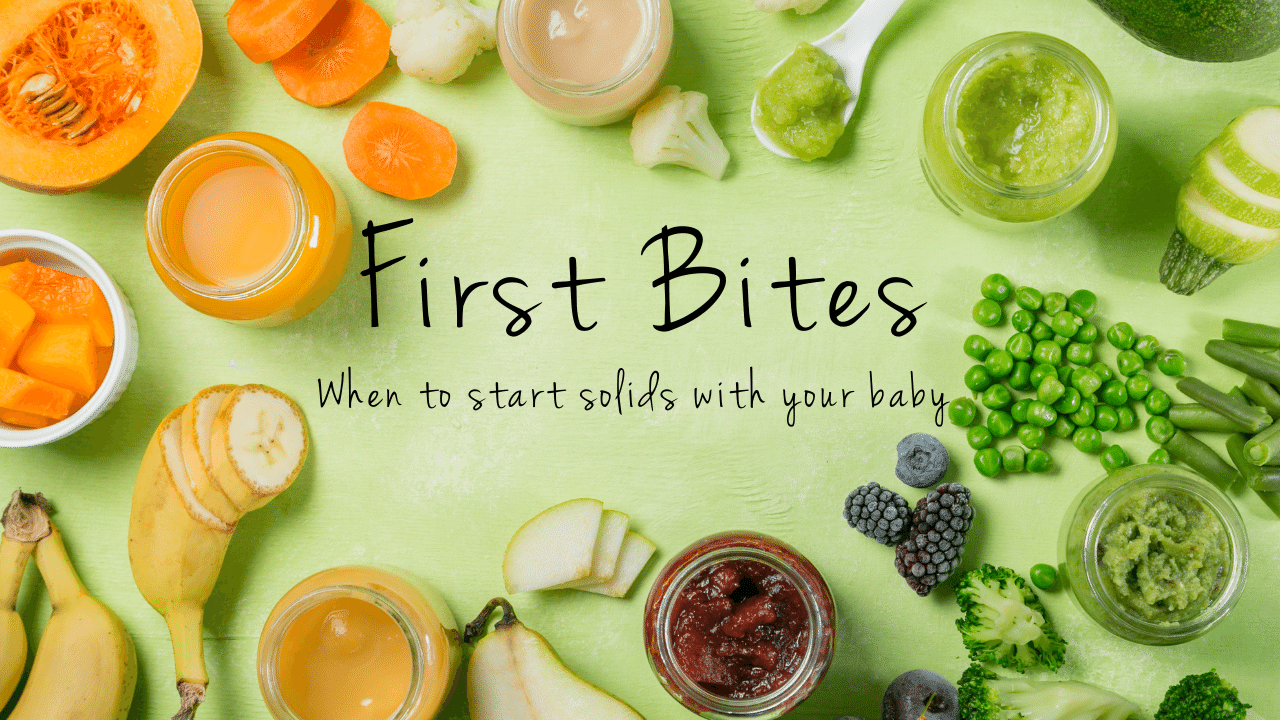
First Bites: When to start solids with your baby
Nov 13, 2020Around 6 months old is the ideal time to begin introducing solid food to your baby according to the World Health Organisation with exclusive breastfeeding or infant formula feeding up to this age & continuing alongside solid food.
The 3 main signs of readiness...
Sign 1 - Sitting
Your baby can sit unsupported and hold their own head and neck steady.
This is important to minimise the risk of choking as this posture keeps your baby’s airways open and clear for swallowing their food. It also indicates that the muscles in their core area have strengthened which helps with achieving sign 2...
Sign 2 - Eye, Hand, Mouth
Your baby has developed good eye, hand & mouth control.
It is important that your baby can see their food & have control to take it to their mouth to explore. Whether you are baby-led weaning or traditional puree feeding, this is a key milestone. They’ll also be better at moving food around their mouth, chewing & swallowing.
Sign 3 - Swallowing
Your baby can swallow food rather than spit it out.
The tongue thrust reflex begins to deminish around 4-6 months allowing your baby to swallow food rather than using their tongue to push food forwards and back out of their mouths. If this reflex is still present it will prevent your baby from swallowing their food & you’ll notice more food being pushed out of the mouth than what is swallowed.
It is unlikely that you will see all three of these signs before the age of 6 months. If food is introduced sooner than around 6 months introduction should not be earlier than 17 weeks old.
Mistaken Signs
The following behaviours that your baby may be showing can often be mistaken for signs of being ready for solid foods:
- Chewing fists
- Wanting extra milk feeds
- Waking up in the night (more than usual)
What does the evidence say...
Why 6 months?
At around 6 months old, breastmilk no longer provides all of the key nutrients & energy to support your baby’s growth & development needs. Food will provide key minerals such as iron & calcium which is no longer available in large enough quantities in breastmilk. Your baby’s digestive systems & kidneys are more mature to cope with the digestion of food. Weaning too early may increase the risk of asthma, eczema, digestive problems, allergies & obesity in later life.
This stage of your baby’s development is also important for them to learn about new tastes & textures, as well as join in family meals.
Starting with vegetables?
Take advantage of your baby’s curiosity for new flavours like bitter vegetables such as:
- broccoli
- cauliflower
- green beans
- kale
- spinach
Offer these as your baby's very first tastes. Babies have a preference for sweet food rather than bitter & sour. Some research suggests ‘veg first’ has long term benefits such as reducing fussy eating later. Your baby may need to try a new food up to 8 times before they accept and enjoy it.
References: World Health Organisation, NHS UK, SACN, Department of Health UK, European HabEat Project, First Steps Nutrition Trust

